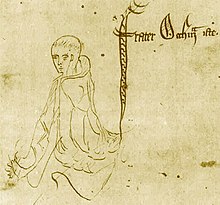Occam's razor - A simple and practical idea!
Occam's razor
Occam's razor, Ockham's razor, Ocham's razor (Latin: novacula Occami), or the principle of parsimony or law of parsimony (Latin: lex parsimoniae) is the problem-solving principle that "entities should not be multiplied beyond necessity",[1][2] sometimes inaccurately paraphrased as "the simplest explanation is usually the best one."[3] The idea is attributed to English Franciscan friar William of Ockham (c. 1287–1347), a scholastic philosopher and theologian who used a preference for simplicity to defend the idea of divine miracles. This philosophical razor advocates that when presented with competing hypotheses about the same prediction, one should select the solution with the fewest assumptions,[4] and that this is not meant to be a way of choosing between hypotheses that make different predictions.
Similarly, in science, Occam's razor is used as an abductive heuristic in the development of theoretical models rather than as a rigorous arbiter between candidate models.[5][6] In the scientific method, Occam's razor is not considered an irrefutable principle of logic or a scientific result; the preference for simplicity in the scientific method is based on the falsifiability criterion. For each accepted explanation of a phenomenon, there may be an extremely large, perhaps even incomprehensible, number of possible and more complex alternatives. Since failing explanations can always be burdened with ad hoc hypotheses to prevent them from being falsified, simpler theories are preferable to more complex ones because they tend to be more testable.[7][8][9]
St. Thomas Aquinas, in the Summa Theologica, uses a formulation of Occam's razor to construct an objection to the idea that God exists, which he refutes directly with a counterargument:[63]
In turn, Aquinas answers this with the quinque viae, and addresses the particular objection above with the following answer:




Comments
Post a Comment